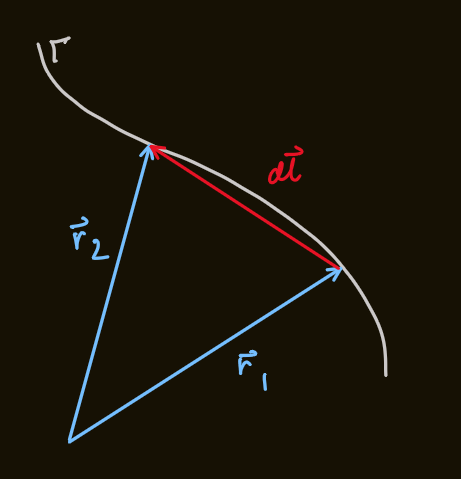PX285 - K2 - kelvin's circulation theorem
kelvin's circulation theorem
the circulation,
proof
- considering two nearby points on

-
the integral vanishes because it is the integral of a perfect differential along a closed path (ie. starting point = end point)
-
for
, using the navier-stokes equation:
and:
- the integral around a closed loop for conservative fields is zero
incompressible
- considering the incompressible limit:
- therefore,
is a constant, or, an invariant of fluid motion, and this proves the theorem
barotropic
- for a barotropic fluid,
only - eg: adiabatic processes:
- eg: isothermal process:
- applying stokes' theorem and some vector identities:
- for a barotropic fluid, the density gradient is parallel to the pressure gradient:
- therefore, the theorem is true for an inviscid fluid if it is either incompressible or barotropic